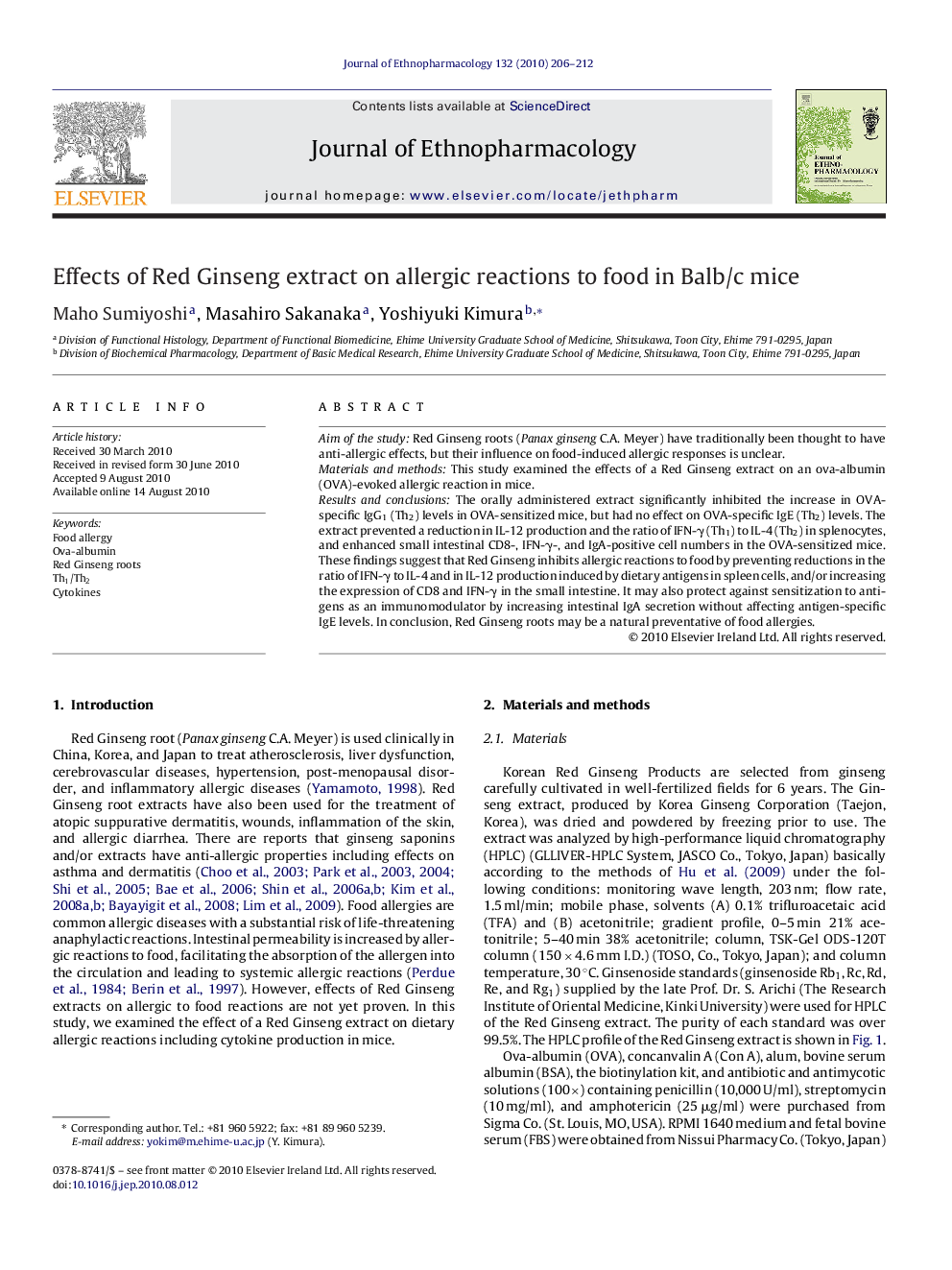| Article ID | Journal | Published Year | Pages | File Type |
|---|---|---|---|---|
| 2545667 | Journal of Ethnopharmacology | 2010 | 7 Pages |
Aim of the studyRed Ginseng roots (Panax ginseng C.A. Meyer) have traditionally been thought to have anti-allergic effects, but their influence on food-induced allergic responses is unclear.Materials and methodsThis study examined the effects of a Red Ginseng extract on an ova-albumin (OVA)-evoked allergic reaction in mice.Results and conclusionsThe orally administered extract significantly inhibited the increase in OVA-specific IgG1 (Th2) levels in OVA-sensitized mice, but had no effect on OVA-specific IgE (Th2) levels. The extract prevented a reduction in IL-12 production and the ratio of IFN-γ (Th1) to IL-4 (Th2) in splenocytes, and enhanced small intestinal CD8-, IFN-γ-, and IgA-positive cell numbers in the OVA-sensitized mice. These findings suggest that Red Ginseng inhibits allergic reactions to food by preventing reductions in the ratio of IFN-γ to IL-4 and in IL-12 production induced by dietary antigens in spleen cells, and/or increasing the expression of CD8 and IFN-γ in the small intestine. It may also protect against sensitization to antigens as an immunomodulator by increasing intestinal IgA secretion without affecting antigen-specific IgE levels. In conclusion, Red Ginseng roots may be a natural preventative of food allergies.
Graphical abstractFigure optionsDownload full-size imageDownload as PowerPoint slide
